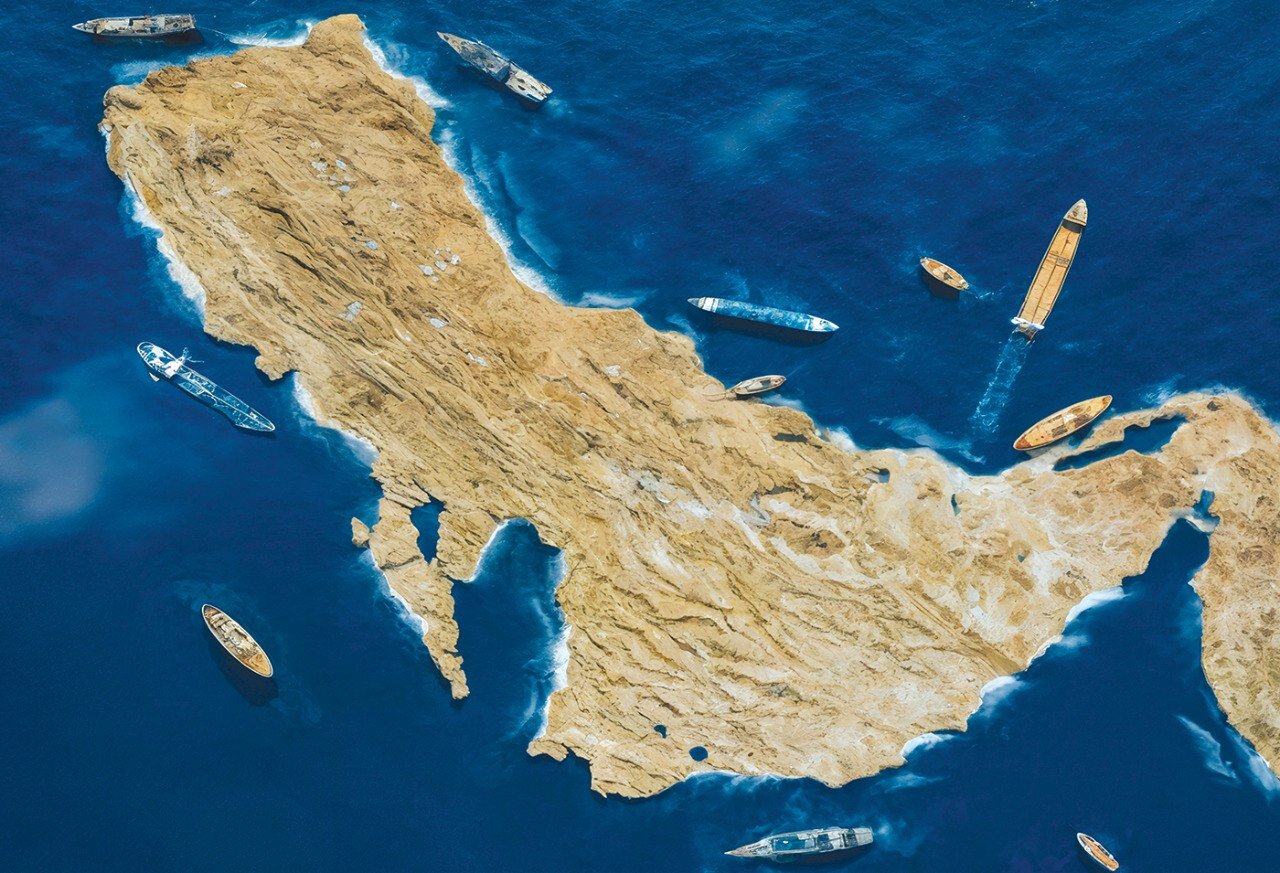Persian Gulf: Our waters, our lands

TEHRAN – A land or body of water can hold diverse meanings. The Persian Gulf, for example, is a vital waterway for global oil transport, an exotic destination for tourists, and a geostrategic location for military forces. But for those who have thrived along its shores for thousands of years, it's a heritage, heritage so deeply ingrained, so fiercely its own, that no flood of propaganda or political maneuvering can ever truly wash it away.
A recent report claiming that U.S. President Donald Trump intends to announce Washington's recognition of the Persian Gulf as the "Arabian Gulf" has sparked strong reactions in Iran, ranging from anger and disbelief to outright ridicule. This follows previous instances where Trump referred to the Gulf of Mexico as the "Gulf of America” and pressured companies like Google and Apple to adopt the new name, and, according to some accounts, even banned a reporter who used the original name from attending White House briefings.
Trump's efforts to rename the Gulf of Mexico, however, did not gain widespread international acceptance. The United Nations, geographical societies, and countries around the world still refer to the body of water as the Gulf of Mexico. The potential move to rename the Persian Gulf faces even greater challenges, as the latter has been referred to as such for at least 2500 years, far predating the existence of the United States and the Arab states in the region.
Persian Gulf through the ages
It is believed that the primitive form of the Persian Gulf was formed along southern Iran by the tectonic interplay of the African and Eurasian plates about 500,000 years ago.
The earliest documented name for the inlet was "Nar Marratu" (Bitter River) in ancient Elamite-Assyrian texts. By the 6th century BCE, the terms "Persian Gulf" or "Persian Sea" were in common usage.
An inscription by Darius the Great, found near the Suez Canal, refers to it as "Dary?ty? Hach? P?rs? ?yity" – "the sea that comes from Persia." After conquering Egypt around 500 BCE, Darius ordered the Suez Canal to be reopened and established Persia's first naval fleet, which sailed from the Red Sea to a naval hub at modern-day Bushehr, further cementing the connection between Persia and the waterway. Inscriptions commissioned by Darius declared, "Our ships sailed to the sea that comes from Persia."
Alexander the Great's admiral, Nearchus, explored the southern seas in 326-325 BCE, documenting his journey from the Indus River to the Persian Gulf. The Greek historian Flavius Arrianus preserved a summary of this account, referring to the body of water as "Persikon Kaitas" (Gulf of Persia). Later Greek geographers like Strabo (1st century BCE-1st century CE) consistently used the name "Persian Gulf."
Roman historians and geographers, including Claudius Ptolemy (2nd century CE) and Quintus Curtius Rufus (1st century CE), also employed terms like "Persicus Sinus" (Persian Gulf) and "Aquarum Persico" (Persian Waters).
Post-Islamic sources are replete with references to "Bahr al-Fars" (Persian Sea) and "Khalij al-Farsi" (Persian Gulf), appearing in the works of Ibn Faqih (9th century), Ahmad ibn Rustah (9th century), Al-Biruni (11th century), Yaqut al-Hamawi (13th century), and Ibn Battuta (14th century).
Even European colonial powers, including the British Royal Navy, used "Persian Gulf" in their official maps and guides from 1868 onward.
The "Arabian Gulf" misnomer
Historically, the term "Arabian Gulf" referred to the Red Sea, as evidenced by the writings of Hecataeus of Miletus, Herodotus, Strabo, and Ptolemy. The attempt to apply the name "Arabian Gulf" to the Persian Gulf originated in 1958, when Iraq’s General Abdul Karim Qasim, seeking pan-Arab leadership, began promoting the term for political gain. This was later echoed by Gamal Abdel Nasser during periods of tension with Iran.
While it's unlikely that Trump’s and Arab states’ attempts to manipulate history would ultimately change the name of the Persian Gulf, such moves could still impact regional ties and diplomatic dynamics.
“The name Persian Gulf is rooted in over two millennia of recorded history and global scholarship. The first attempts to distort this name arose from hostility toward the Iranian people,” Wrote Ali Akbar Salehi, former Iranian Foreign Minister and current head of the Iranology Foundation on X. “Our neighboring countries certainly do not wish to be associated with such hostility today.”
West Asia analyst Mostafa Najafi believes the renewed push by some Arab states to promote an alternative name for the Persian Gulf may signal a more significant underlying strategy. He suggests it could embolden countries like the UAE, which lays claim to the Iranian islands of Bu Musa, Greater Tunb, and Lesser Tunb.
"The potential attempt at renaming the Persian Gulf by Trump's administration should be viewed in the context of a broader regional strategy, which could also lead to dangerous moves regarding the three islands," Najafi said. He added, "If this occurs, it would suggest that the Arab states surrounding the Persian Gulf, particularly the UAE, are making concessions to gain certain advantages. Arabs have learned from their previous hardline approach of containing and confronting Tehran. Now, under the pretense of reducing tensions, they could be pursuing anti-Iranian policies in a different way."
